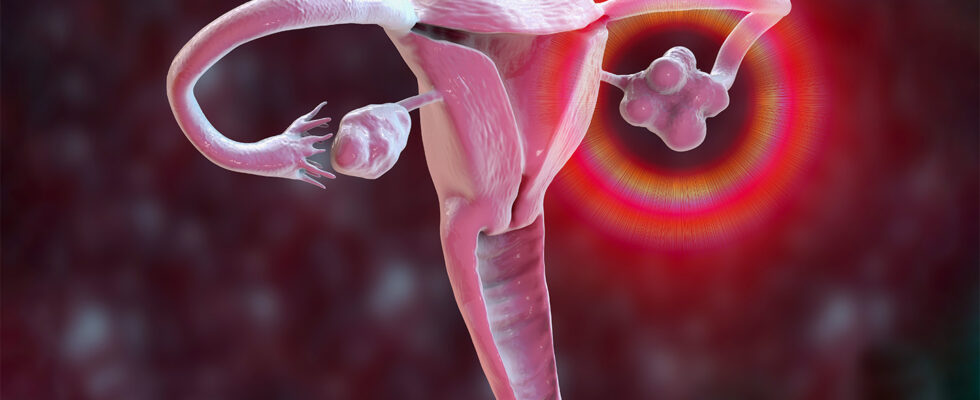A common antimalarial drug could also be used to treat polycystic ovarian syndrome, an endocrine disorder that affects hundreds of millions of people of reproductive age worldwide.
After receiving repeated doses of artemisinin, a small group of women with PCOS had lower blood testosterone levels and healthier-looking ovaries, researchers report in the June 14 Science. The results suggest artemisinin compounds, which are already known to be effective against malaria, lupus and cancer, could also be used to alleviate symptoms of PCOS.
The discovery could “potentially change the landscape of PCOS treatment,” Elisabet Stener-Victorin, an endocrinologist at the Karolinska Institute in Stockholm who was not involved in the research, writes in a perspective in the same issue of Science. “Although further studies will be needed … the discovery of artemisinins as effective remedies for PCOS nonetheless represents a promising new approach.”
Despite the prevalence of PCOS, what causes the disorder is not known. Doctors diagnose it based on elevated levels of hormones called androgens, which includes testosterone, and a plethora of small cysts on patients’ ovaries. Treatments tend to target specific symptoms, such as acne, excess hair growth, irregular menstruation or infertility. People with PCOS are also at higher risk of metabolic conditions such as type 2 diabetes, and researchers now think that underlying changes to the systems controlling our metabolism, like the one involving insulin, are to blame for both.
In 2016, Qi-Qun Tang, a molecular biologist and medical researcher at Fudan University in Shanghai, was studying adipocytes, better known as fat cells, and metabolic diseases. Screening 3,000 drugs, Tang and colleagues identified the Nobel Prize–winning drug artemisinin as a promising candidate to turn white adipose tissue into brown or beige adipose tissue, which is easier to lose, to treat symptoms of obesity (SN: 10/5/15). Coincidentally, around the same time, another group found that brown adipose tissue could be used to treat PCOS in rats.
“We became interested in investigating the potential impact of artemisinins on PCOS,” Tang says.
The team first tested the idea in rodents, injecting female mice with an androgen called dehydroepiandrosterone to induce PCOS symptoms. If mice were also simultaneously given artemisinin along with the hormone, PCOS-like symptoms such as an interrupted fertility cycle, elevated testosterone in the blood and ovarian cysts never developed. After seeing similar results in rats, the team tested the drug in a small clinical study of people with PCOS.
Nineteen patients took dihydroartemisinin, the form of artemisinin used to treat malaria, three times a day for three months. After this treatment regimen, 12 of the patients began having regular menstrual cycles, and most of the patients had lower blood testosterone levels and fewer developing follicles in their ovaries. Follicles contain egg cells that are released during ovulation in order to be fertilized. Having an overabundance of them is a sign of PCOS; a follicle that does not release an egg can develop into a cyst.
Biochemical tests showed artemisinin helps degrade a testosterone-making protein called CYP11A1, which contains heme, resulting in less testosterone in the blood to interfere with the ovaries’ normal activity. Heme contains iron, which can react with artemisinin to produce toxic forms of oxygen that can go on to kill malarial parasites or cancer cells, says Yang Liu, a biologist also at Fudan University. These cellular interactions with heme are most likely how artemisinin works against so many different ailments.
We still need to understand where else in the body artemisinin is acting, says Sireesha Reddy, an obstetrician and gynecologist at Texas Tech University Health Sciences Center El Paso, who cautions that the results are very preliminary and need to be replicated by other researchers. She suggests investigating how the drug affects cardiometabolic symptoms of PCOS by measuring levels of insulin and lipids in the blood, and how it works in patients with more severe PCOS, like those with higher weights and BMIs than the individuals in this study.
The team next plans to test different forms and dosages of artemisinin to find what works best against PCOS before potentially moving on to larger clinical trials. Tang says he is also keen to see if artemisinin can restore one of PCOS’s most serious symptoms — patients’ loss of fertility. “We have a long way to go to see how they can get fertility back.”
source site

